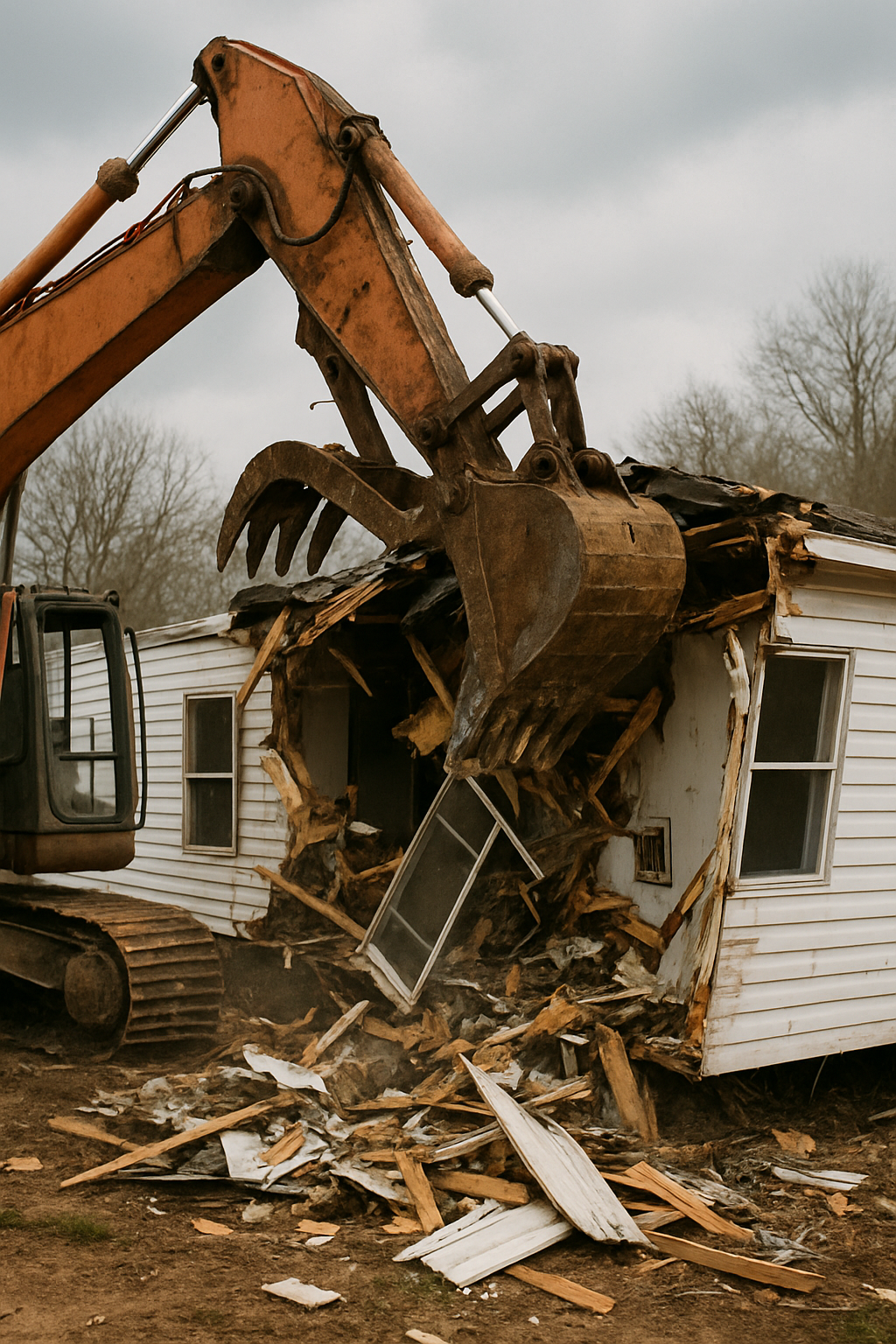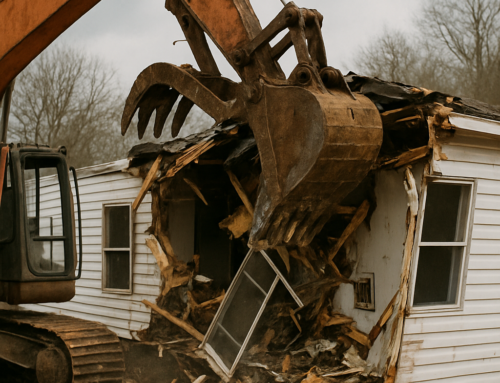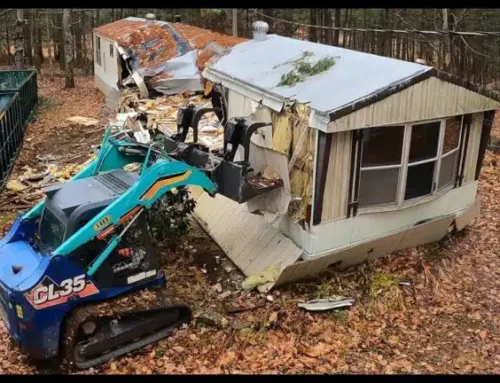Mobile Home Demolition: Everything You Need to Know
Are you planning to remove an old or damaged mobile home from your property? Mobile home demolition is a practical and efficient way to make space for new developments or simply improve the safety and aesthetics of your land. Whether you’re dealing with a fire-damaged unit, outdated trailer, or abandoned mobile home, understanding the demolition process can help you make informed decisions.
What is Mobile Home Demolition?
Mobile home demolition refers to the systematic dismantling and removal of a mobile or manufactured home. While some may confuse it with deconstruction or relocation, demolition typically involves tearing the structure down using heavy machinery and disposing of the debris properly. This process is performed by experienced demolition contractors who follow local regulations and environmental guidelines.
Why You Need Professional Mobile Home Demolition
While it might seem like a simple tear-down job, mobile home demolition is far from a basic DIY project. Here’s why hiring professionals is essential:
- Safety: Experienced contractors understand how to safely handle hazardous materials like asbestos, lead paint, or electrical wiring.
- Compliance: Pros are familiar with local and state laws, including permit requirements and zoning regulations.
- Efficiency: Professional crews come equipped with the right tools and machinery to complete the job swiftly and correctly.
- Waste Management: Proper disposal and recycling of construction debris is handled appropriately, reducing environmental impact.
Key Considerations When Hiring a Mobile Home Demolition Contractor
Before hiring a mobile home demolition service, consider these important factors:
- Licensing and Insurance: Ensure the company is properly licensed and carries liability insurance.
- Experience: Look for a track record of successful mobile home demolitions.
- Equipment: Verify that the contractor owns or has access to appropriate machinery for the job.
- Cost Estimates: Request a detailed, written estimate outlining labor, disposal, permits, and any additional fees.
- Customer Reviews: Read reviews and ask for references to gauge the quality of their service.
The Demolition Process for Mobile Homes
The typical mobile home demolition process includes the following steps:
- Site Inspection: The contractor assesses the site and structure to determine scope and necessary permits.
- Utility Disconnection: Electric, gas, and water lines are safely shut off before demolition begins.
- Permitting: The contractor obtains required local permits for demolition and waste removal.
- Demolition: Heavy equipment such as excavators or bulldozers are used to tear down the structure.
- Debris Removal: Materials are sorted for disposal and recycling before being hauled off-site.
- Site Cleanup: The area is leveled, cleared of hazards, and prepared for future use.
Common Mistakes to Avoid When Hiring for Mobile Home Demolition
To ensure a smooth demolition process, steer clear of these common pitfalls:
- Hiring unlicensed or uninsured contractors
- Neglecting to check reviews and past work
- Underestimating the importance of permits and regulations
- Choosing a contractor based solely on price
- Failing to get a written contract or detailed scope of work
Benefits of Hiring a Local Mobile Home Demolition Contractor
Choosing a local contractor for your mobile home demolition comes with several advantages:
- Local Expertise: They understand regional zoning laws and building codes.
- Faster Response: Proximity often leads to quicker site visits and project turnaround.
- Community Trust: Local businesses rely on their reputation and are more likely to deliver reliable service.
- Cost Savings: Lower travel and transportation costs compared to out-of-area contractors.


